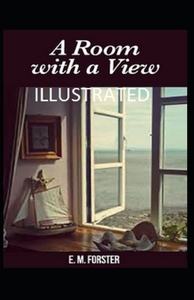You need to sign in or sign up before continuing.
Take a photo of a barcode or cover
adventurous
challenging
emotional
hopeful
reflective
relaxing
fast-paced
Plot or Character Driven:
A mix
Strong character development:
Yes
Loveable characters:
Yes
Flaws of characters a main focus:
Yes
I don't deal with romance much. It's a trait that's bled over from real life experiences into my tastes for a very long time, but it wasn't until recently that I started vivisecting it for more credible reasons than "I don't like chick flicks/soap operas/other degenerating names for lovey dovey things that females are supposed to like". If there's one thing I've learned, it's that something is always wrong at the heart of things whenever the word "female" is incorporated into an instinctive dislike.
The word "female" is also a major hint. Now, I don't socialize with as often or with as many people in real life as the average person, but even I've picked up on myriad tropes of conversation that are ubiquitous for females in their twenties, aka me: Do you have a boyfriend? No? Oh, are you looking for one? No? Oh, you're not interested in a boyfriend? Don't you want kids? Now take that and apply it to every form of media aimed at women, from book to movie to television commercial and everything in between. Being someone with far greater interests in more important issues than the future of my womb, this omnipresent intrusiveness is annoying enough without actively seeking it out in entertainment centered around romance, or rather the series of male fantasies society likes to pretend is acceptable for anyone and everyone.
In short, if you want to sell me a romance, it either needs to avoid the problematic tropes or subvert them entirely, period. Life is short and made even shorter by the majority of others you converse with constantly bringing up a problematic version of love and sex and all that jazz, and as consequence I have no time for that shit in my literature. The issue's insidious enough that even female authors don't realize it most of the time, so let me get to the point already and explain just what I'm doing with this book that all signs say should be putting me off forevermore.
Had it not been for reading Howards End immediately previous, I would have spent the majority of A Room with a View expecting Forster to fail. It's obvious why the latter is far more popular than the former: lots of comedy, lots of twists and turns, lots of outrageous characters, and a minimal amount of the juicy expoundings of thought and form and Big Ideas that I so adored in the previous. Both works operate through a female main character, but in ARwaV it is not until the very end that Forster is giving said character credit for her own intelligent autonomy, thereby showing me that he did indeed know what he was doing.
It's not perfect. I could bring up the usual Edwardian White English Male excuse, but seeing as how this work does romance magnitudes better than the majority of modern day works by both sexes (don't be lazy and consign it to Nora Roberts/50 SoG, that's instinctive dislike based on the word "female" and you know it), I'll forgo the easy "sign of the times" classification. What interests me more is how Forster handled his balance between social justice and individual happiness, less masterful here than in HE but all the more potent for its seeming conformation to the stereotypical "happy ending". Love is a human thing that is only achieved through mutual respect and complete lack of defining the other party by their respective parts; Forster's awareness of this, as well as his acknowledgement of the efforts men need to make as consequence of their ideology based privilege, won the day.
Also, he did make me giggle a few times. That's always worth something.
The word "female" is also a major hint. Now, I don't socialize with as often or with as many people in real life as the average person, but even I've picked up on myriad tropes of conversation that are ubiquitous for females in their twenties, aka me: Do you have a boyfriend? No? Oh, are you looking for one? No? Oh, you're not interested in a boyfriend? Don't you want kids? Now take that and apply it to every form of media aimed at women, from book to movie to television commercial and everything in between. Being someone with far greater interests in more important issues than the future of my womb, this omnipresent intrusiveness is annoying enough without actively seeking it out in entertainment centered around romance, or rather the series of male fantasies society likes to pretend is acceptable for anyone and everyone.
In short, if you want to sell me a romance, it either needs to avoid the problematic tropes or subvert them entirely, period. Life is short and made even shorter by the majority of others you converse with constantly bringing up a problematic version of love and sex and all that jazz, and as consequence I have no time for that shit in my literature. The issue's insidious enough that even female authors don't realize it most of the time, so let me get to the point already and explain just what I'm doing with this book that all signs say should be putting me off forevermore.
Had it not been for reading Howards End immediately previous, I would have spent the majority of A Room with a View expecting Forster to fail. It's obvious why the latter is far more popular than the former: lots of comedy, lots of twists and turns, lots of outrageous characters, and a minimal amount of the juicy expoundings of thought and form and Big Ideas that I so adored in the previous. Both works operate through a female main character, but in ARwaV it is not until the very end that Forster is giving said character credit for her own intelligent autonomy, thereby showing me that he did indeed know what he was doing.
It's not perfect. I could bring up the usual Edwardian White English Male excuse, but seeing as how this work does romance magnitudes better than the majority of modern day works by both sexes (don't be lazy and consign it to Nora Roberts/50 SoG, that's instinctive dislike based on the word "female" and you know it), I'll forgo the easy "sign of the times" classification. What interests me more is how Forster handled his balance between social justice and individual happiness, less masterful here than in HE but all the more potent for its seeming conformation to the stereotypical "happy ending".
Spoiler
True, Lucy running away from George to would have unequivocally demonstrated her refusal to be defined by a man, but in exchange she would be defined by a society with an inherently problematic view of relations between women and men.Also, he did make me giggle a few times. That's always worth something.
funny
hopeful
lighthearted
relaxing
medium-paced
Plot or Character Driven:
Character
Strong character development:
Yes
Loveable characters:
Yes
Diverse cast of characters:
No
Flaws of characters a main focus:
Yes
slow-paced
Loveable characters:
No
Diverse cast of characters:
No
Flaws of characters a main focus:
Yes
funny
hopeful
medium-paced
Plot or Character Driven:
Character
Strong character development:
Yes
Loveable characters:
Yes
Diverse cast of characters:
No
Flaws of characters a main focus:
Yes
i had no idea that by taking an english class simply to get a credit for my minor (and because it fit in my schedule) that I would find one of my new favourite books. so much more than a romance but so much less than an outlandish tale. it is simply a tale of a woman finding herself in a world that has unlimited expectations for her. it is a very simple book but for some reason it stuck with me, and i couldn't wait to continue reading it. lucy is a wonderful, intelligent, well-rounded character and it was so fun to see her develop. read this!!!!!!!
also. mr beebe is a queer bestie i love him!!
also. mr beebe is a queer bestie i love him!!
emotional
funny
hopeful
lighthearted
medium-paced
Plot or Character Driven:
A mix
Strong character development:
Complicated
Loveable characters:
Yes
Diverse cast of characters:
No
Flaws of characters a main focus:
Yes
emotional
funny
hopeful
lighthearted
reflective
sad
fast-paced
Plot or Character Driven:
Character
Strong character development:
Yes
Loveable characters:
Yes
Diverse cast of characters:
No
Flaws of characters a main focus:
No
A Room with a View is such a charming coming-of-age story. It's light, but tender, without being too sentimental. It's quintessentially English. I finally read it while traveling through the Tuscan countryside on my way to Florence this last summer, and loved it.






